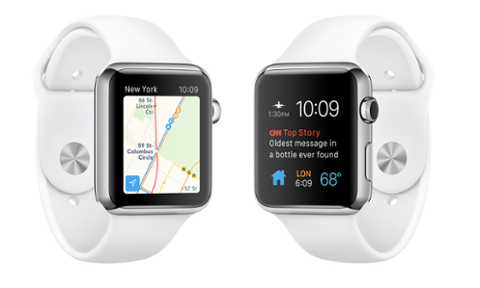Devs, 'Simple and Cheap' Is Your Friend
Earlier this week, research firm IDC released its estimates of the wearable-electronics market, and the Apple Watch came in second behind Fitbit. IDC believes Apple shipped 3.6 million timepieces in the second quarter of 2015, lagging a tad behind Fitbit, which moved 4.4 million units during the same period. “Fairly or not, Apple will become the stick against which other wearables are measured, and competing vendors need to stay current or ahead of Apple,” Ramon Llamas, research manager for IDC, wrote in a statement accompanying the data. “Now that Apple is officially a part of the wearables market, everyone will be watching to see what other wearable devices it decides to launch, such as smart glasses or hearables.” But IDC also highlights how Fitbit is succeeding in an increasingly crowded market, for a handful of very simple reasons: Its products are cheap and perform a limited set of functions very well. Compare that to the Apple Watch, which sells at a premium compared to virtually all smartwatches on the market, and attempts to justify that price with a wide variety of features and apps. Considering Apple’s immense reach and marketing budget, it was always a given that the Apple Watch would sell an enormous number of units. Nonetheless, the current state of the wearable category suggests that you can also succeed by focusing on developing a product that, while well-made, is also simple and cheap. For tech pros attempting to launch their own products with the help of Kickstarter (or merely through venture funding), simple and cheap might be the only choice available; more than one newborn project has imploded because its creators decided to add layer after layer of unnecessary complexity. Don’t be afraid to keep things minimalist; you can still succeed.



